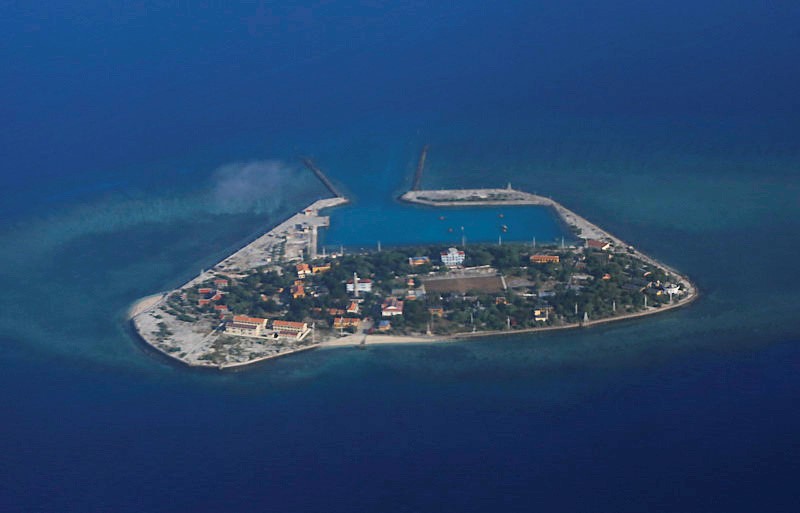BEIJING/HANOI (Reuters) - China urged Vietnam on Friday to take a calm and rational view of its military drills in the South China Sea, after Vietnam expressed opposition, as tension between the neighbours worsens over the disputed strategic waterway.
China has appeared uneasy at Vietnam's efforts to rally Southeast Asian countries over the busy waterway as well as at its neighbour's growing defence ties with the United States, Japan and India.
In July, under pressure from Beijing, Vietnam suspended oil drilling in offshore waters that are also claimed by China.
Vietnam was deeply concerned about the exercises in the Gulf of Tonkin area, at the north end of the South China Sea, Foreign Ministry spokeswoman Le Thi Thu Hang said in a statement, but did not make clear what drills were being referred to.
"Vietnam proposes China to cease and refrain from repeating acts that complicate the situation in the East Sea," Hang said, employing Vietnam's name for the South China Sea.
All foreign activities in Vietnamese waters must comply with Vietnamese and international laws, she added.
Vietnam's Foreign Ministry conveyed its position to a Chinese embassy representative on Thursday, the statement added, without saying when China's announcement was made or when any drill might take place.
In Beijing, Chinese foreign ministry spokeswoman Hua Chunying said the drills were routine annual exercises and were being carried out in the northwestern part of the South China Sea.
"The relevant sea is under China's jurisdiction," she told a daily news briefing on Friday, adding that China had the right to carry out such drills in the waters there.
"We hope the relevant side can calmly and rationally view it," she added.
Last month, the Maritime Safety Administration of China's southern province of Hainan, which oversees the South China Sea, said military drills would take place south of the province and east of Vietnam from Aug. 29 until Sept. 4.
There would be live fire drills around the Paracel Islands, which Vietnam claims, until Sunday, it added.

China claims nearly all the South China Sea, through which an estimated $3 trillion in international trade passes each year. Brunei, Malaysia, the Philippines and Taiwan also have claims.